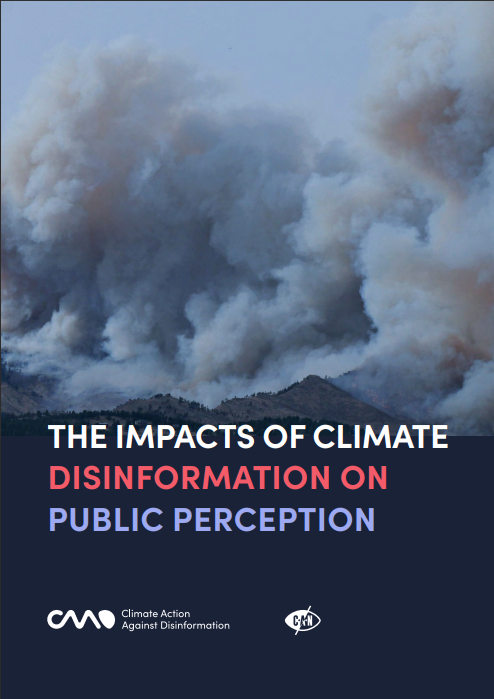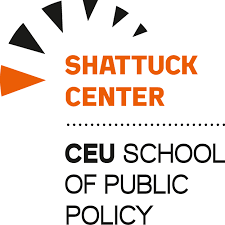The report highlights the prevalence of climate misinformation and its impact on public perception worldwide. It emphasizes the role of media and social media in shaping these attitudes, illustrating the need to address climate misinformation for effective climate action and policy. Participants were gathered online via YouGov’s panel from Australia, Brazil, India, Germany, the UK, and the USA. The survey explored misconceptions about climate, fossil fuel and energy consumption, renewables, energy prices, the net-zero transition, climate action, and policy.
It revealed a disparity between public perception and scientific facts, which weakens support for climate action and undermines climate negotiations. For example, many participants believed that fossil gas was climate-friendly. The report also highlighted the belief in climate disinformation and its influence on public perception, highlighting the need to combat it. These findings emphasize the need to address climate disinformation to ensure public awareness and support for climate action.
Key Findings:
- Prevalence of Misinformation: it reveals a worrying trend of widespread belief in climate disinformation across several countries. Studies conducted in Australia, Brazil, Germany, India, the UK, and the US show that 55% and 85% of respondents believe in at least one form of climate misinformation.
- Misconceptions and Myths: Common themes of disinformation identified include denial of climate change, understating human influence, promoting false solutions, and exaggerating the economic or social costs of climate action. These misconceptions can significantly hinder public support for necessary climate policies.
- Knowledge Gaps and Media Consumption: it identifies a correlation between lower levels of climate knowledge and higher susceptibility to misinformation. Additionally, it highlights the role of social media and specific media outlets in spreading false narratives.
- Impact on Public Perception: Belief in climate disinformation can lead to decreased concern about climate change, lower willingness to engage in individual or collective action, and reduced support for climate policies. This weakens the public mandate for urgent climate action.
- Regional Variations: it finds interesting variations in disinformation prevalent across different regions. For example, fossil gas being portrayed as a climate-friendly solution was a common misconception in certain countries.
Overview
Section 1
Explores the effects of climate misinformation on public perception and climate action. It highlights that misinformation threatens the transition towards a net-zero future by distorting facts and spreading false narratives, obstructing policy-making and political actions to combat climate change. The analysis investigates beliefs in misinformation across countries, including Australia, Germany, India, Brazil, the UK, and the US. It shows that a large portion of the population in these countries has misconceptions about climate change. These misconceptions range from doubts about the reality of climate change to scepticism about human activities being the primary cause.
Furthermore, it notes that some people hold conspiratorial views about climate change. This trend is concerning as misinformation affects public understanding and trust towards scientific consensus and climate action initiatives. It also discusses misconceptions about climate change and reveals that 6% and 23% of the population in the report deny or are uncertain about its existence. This disagreement on such a vital issue underlines the impact of misinformation on public perception and the need for interventions to debunk these false narratives.
Section 2
Offers an analysis of the correlation between media consumption and climate misinformation. It emphasizes understanding how various media types affect public attitudes towards climate change and misinformation. Initially, it overviews media consumption trends in several countries, including Australia, Germany, India, Brazil, the UK, and the US. The report then explores the link between media consumption habits and belief in misinformation. It shows that those who consume media more frequently believe less in misinformation. However, it also notes that highly informed individuals may be more susceptible to inaccurate information.
This section underlines the media’s role in reinforcing or challenging misinformation narratives about climate change. It underscores the importance of media literacy and responsible journalism in preventing the spread of climate misinformation. It also notes that social media platforms rank third as the survey’s most common primary news source. This suggests that social media companies must be accountable for the content they host and endorse.
Section 3
Media consumption significantly influences climate misinformation beliefs. Compares the views of regular consumers from specific media outlets and the general public, illustrating the impact of information sources on perceptions of climate change and misinformation. Case studies reveal different levels of misinformation belief among audiences from various media outlets. For example, the Daily Mail in the UK has a high misinformation belief among its regular readers. This underscores the role of some media outlets in spreading climate misinformation and shaping public opinion.
In the US, the report shows that regular Fox News viewers have higher levels of misinformation belief compared to the general public. This finding emphasizes the influence of news channels in shaping climate change attitudes and the need for media literacy and critical thinking. It also highlights the role of social media platforms in affecting climate misinformation beliefs. In Brazil and India, users from specific social media channels and news outlets show higher belief levels in misinformation narratives, pointing to the role of online platforms in spreading misleading climate change information.
Section 4
This section offers a detailed overview of the research methodology, enhancing the report’s findings’ transparency, credibility, and reliability. It highlights the critical decision to conduct the study online and recruit respondents through YouGov’s online panel. This approach facilitated efficient data collection from diverse participants across different countries, ensuring a broad representation of public attitudes towards climate change and misinformation. Furthermore, it explains the use of non-probability quota sampling to draw representative samples from each country in the study. This sampling technique aimed to capture a diverse range of perspectives and demographic characteristics, consequently contributing to the validity and generalizability of the findings.
Moreover, the section underscores the importance of data weighting using the Random Iterative Method (RIM). This process adjusts the survey data based on age, gender, region, education, past voting behavior, and political interest. The goal is to correct potential biases in the sample and ensure an accurate representation of the demographic composition of the populations studied. Finally, it explains the variables used for data weighting and the methodological approach taken. This enhances the transparency and robustness of the research conducted. The detailed methodology bolsters the credibility of the findings and helps readers understand the study process, facilitating a more informed interpretation of the results.
Recommendations:
- Promoting Climate Literacy: Investing in climate education and fact-checking initiatives to improve public understanding of climate science and counter misinformation.
- Strengthening Media Accountability: Calling for social media platforms and media outlets to implement stricter policies against the spread of climate disinformation.
- Supporting Independent Journalism: Encouraging fact-checking initiatives and supporting independent, science-based journalism to provide transparent and accurate information.
- Engaging Diverse Audiences: Tailoring communication strategies to reach different demographics and address specific concerns or misinformation prevalent in those communities.
- Policy Interventions: Exploring potential policy solutions like financial disincentives for spreading misinformation or promoting media literacy in school curriculums.




